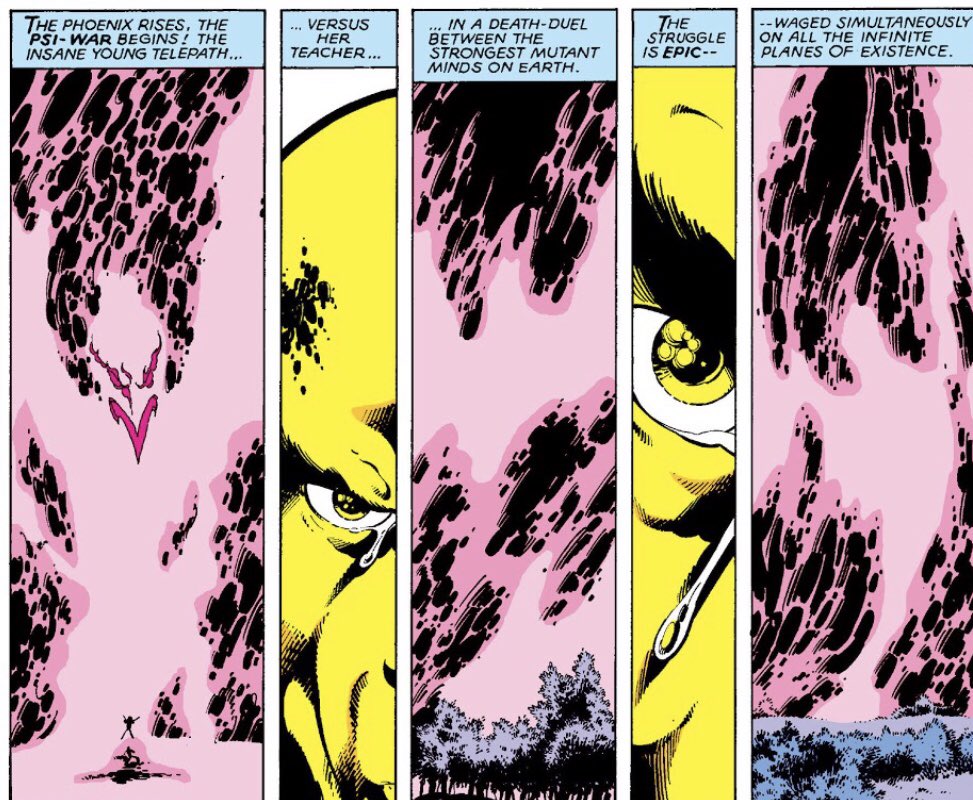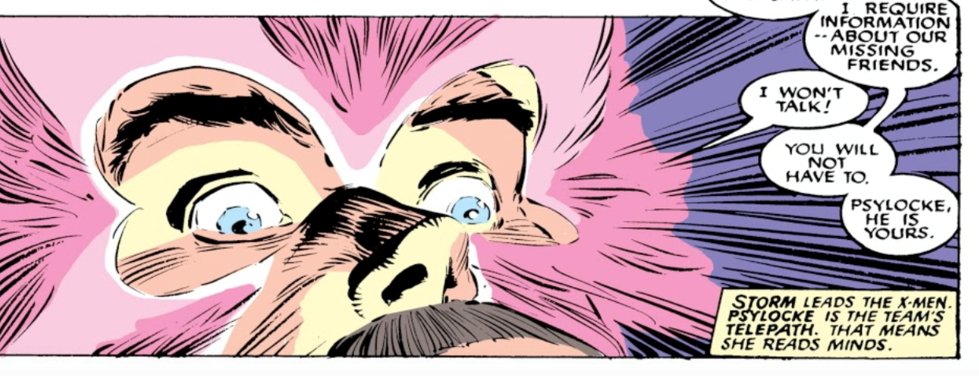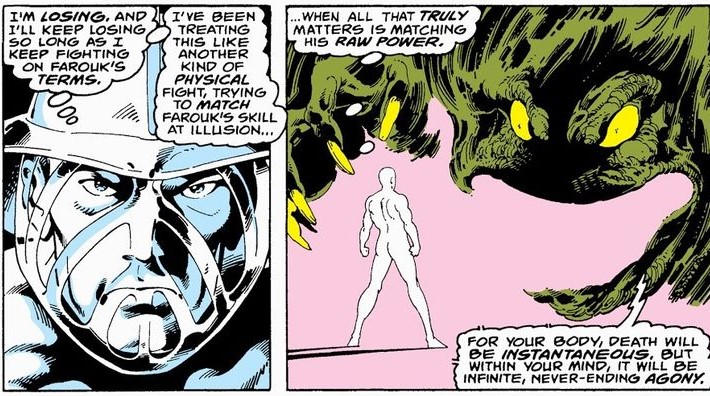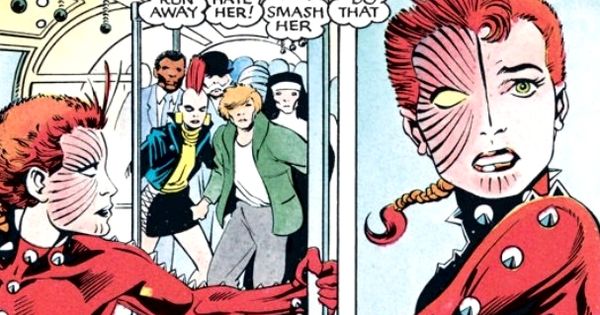In his essay “Dirty Hands and Dirty Minds: the Ethics of Mind-Reading and Mind-Writing,” philosophy professor Andrew Terjesen raises a number of arguments about the paradigm-altering power the X-telepaths possess. #xmen 1/7
“Imagine living in the Marvel X-Verse where Professor X, Jean Grey, or Emma Frost can alter your thoughts so subtly that you wouldn’t be able to tell whether an idea or an action is your own. Would you trust them to use their powers only when necessary” (153)? 2/7
For Terjesen, telepathy would represent the breakdown of the fundamental barrier between private and public existence with massive ramifications on things like therapy, criminal justice, and even the abstract concept of shame. 3/7
Claremont’s X-Men can’t really engage with these paradigm shifts for fear of creating a world that would be unrecognizable to the reader and therefore unrelatable. Instead, Claremont relies on a number of contrivances to prevent world integration of telepathy. 4/7
These include, but are not limited to, a code of ethics and consent, a society that fears telepathy causing telepaths to stay underground, so to speak, or even just the portrayal of a naïve world that doesn’t seem to grasp the consequences of telepathy. 5/7
Through these and other devices, Claremont is able to tell stories about a world-altering power, without altering the world to too great a degree. Of course, this has to be done with other superpowers as well. 6/7

 Read on Twitter
Read on Twitter








